Why We Grow Pea Vine on Our Organic Farm
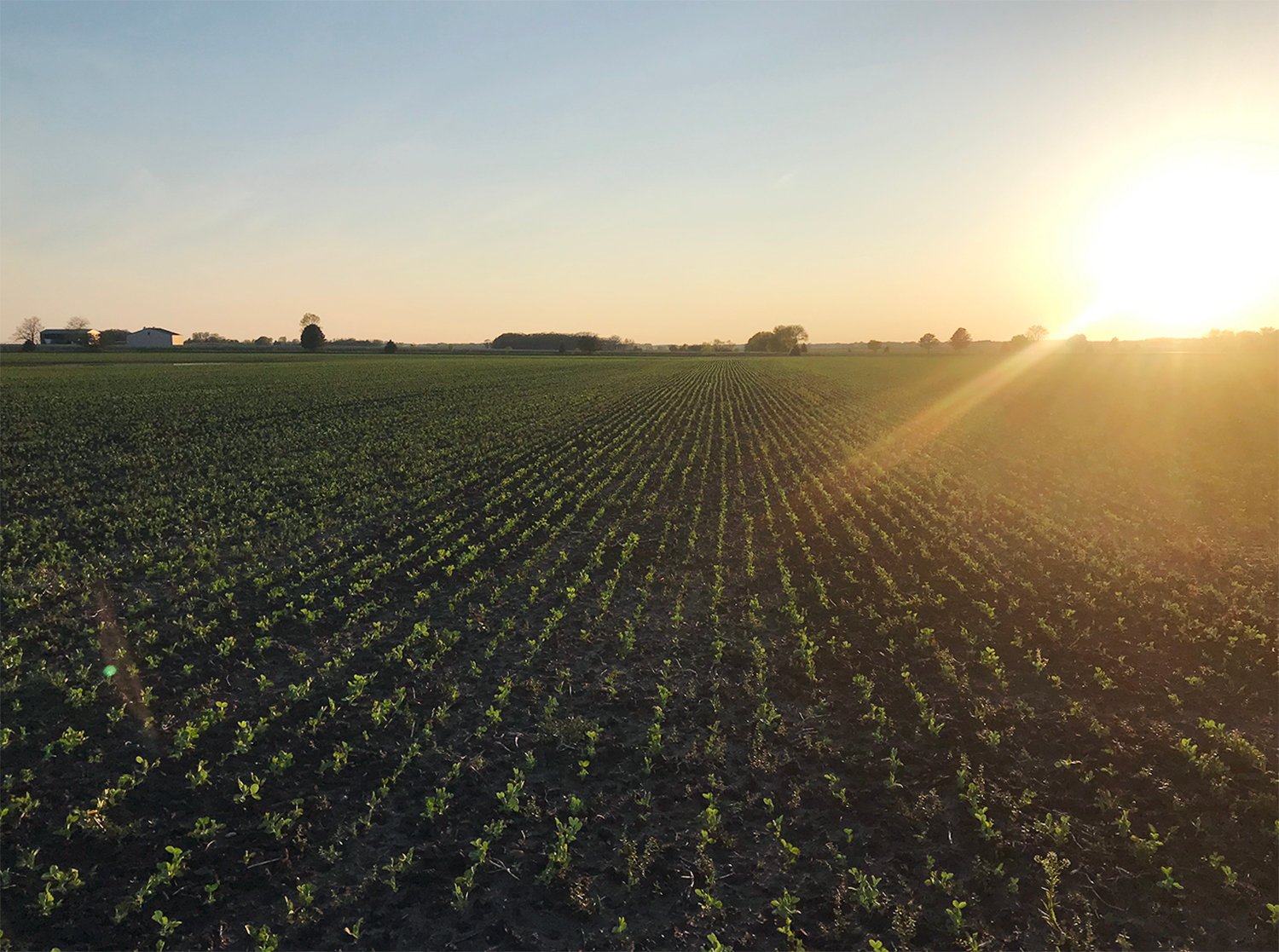
Originally from the Mediterranean basin and the Near East, the common pea (Pisum sativum) is one of the first crops planted each spring on our certified organic farm in Palmyra, Wisconsin. From early April through June, we carefully watch and tend to the pea vine and marvel not only at pea vine’s beauty, but also at how the plant contributes to the ecosystem of our farm.
More than just an ingredient we grow, pea vine has a number of supplementary benefits that improve the health and quality of everything else grown on our farm.
Benefits of Planting Early
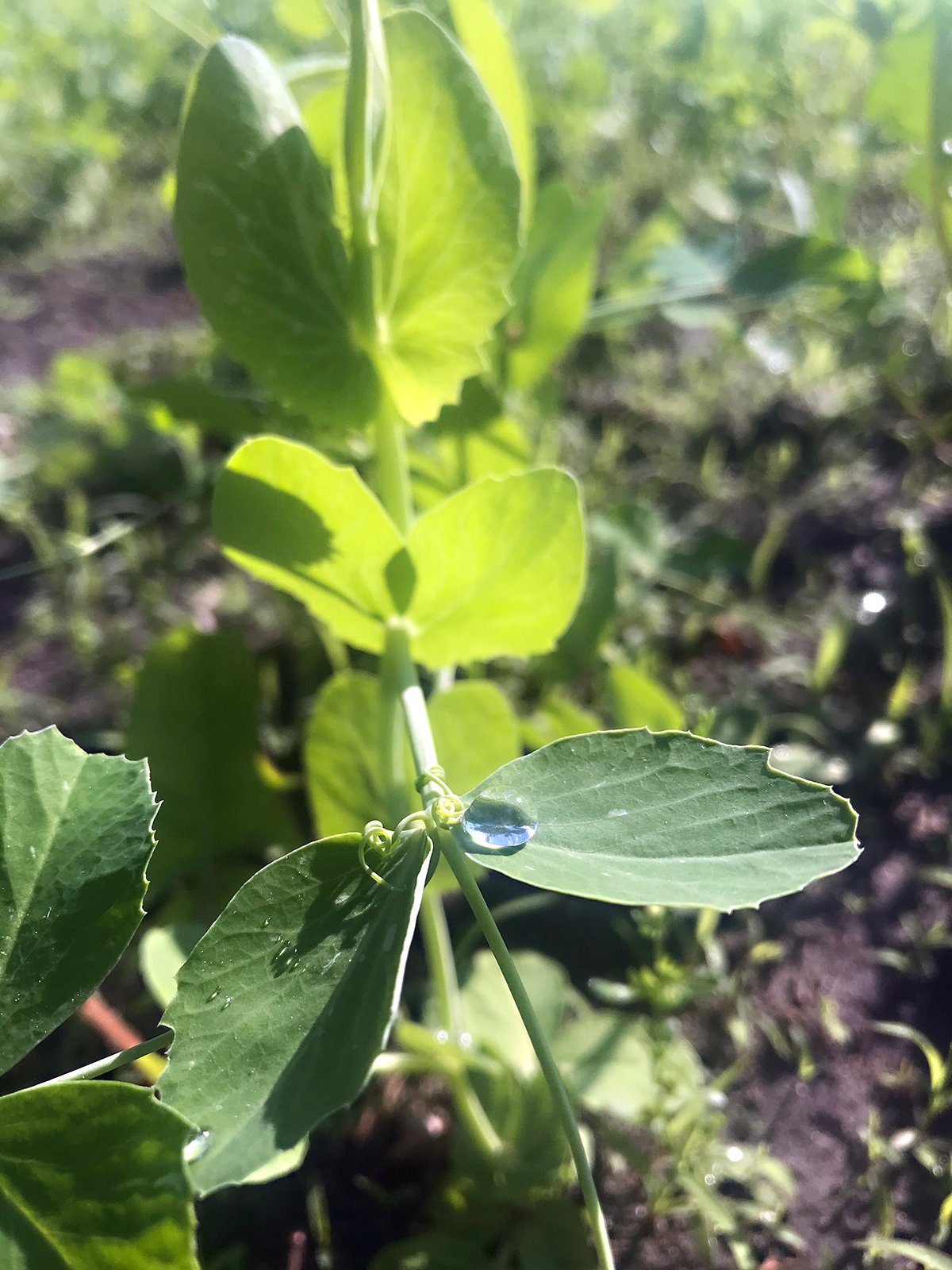 Each spring we plant our pea vines as early as possible, which ideally is early April for us. This plant loves the cold, making it an ideal choice for our farm here in Wisconsin, where we certainly experience some prolonged winters.
Each spring we plant our pea vines as early as possible, which ideally is early April for us. This plant loves the cold, making it an ideal choice for our farm here in Wisconsin, where we certainly experience some prolonged winters.
When farming organically, managing insect and weed infestations is a serious concern. The pea vine’s preference for cooler climates makes it perfect for organic farming because the low temperatures keep the bad bugs at bay and prevent most weeds from taking root before the pea vine starts to come in.
Attracting & Supporting Pollinators
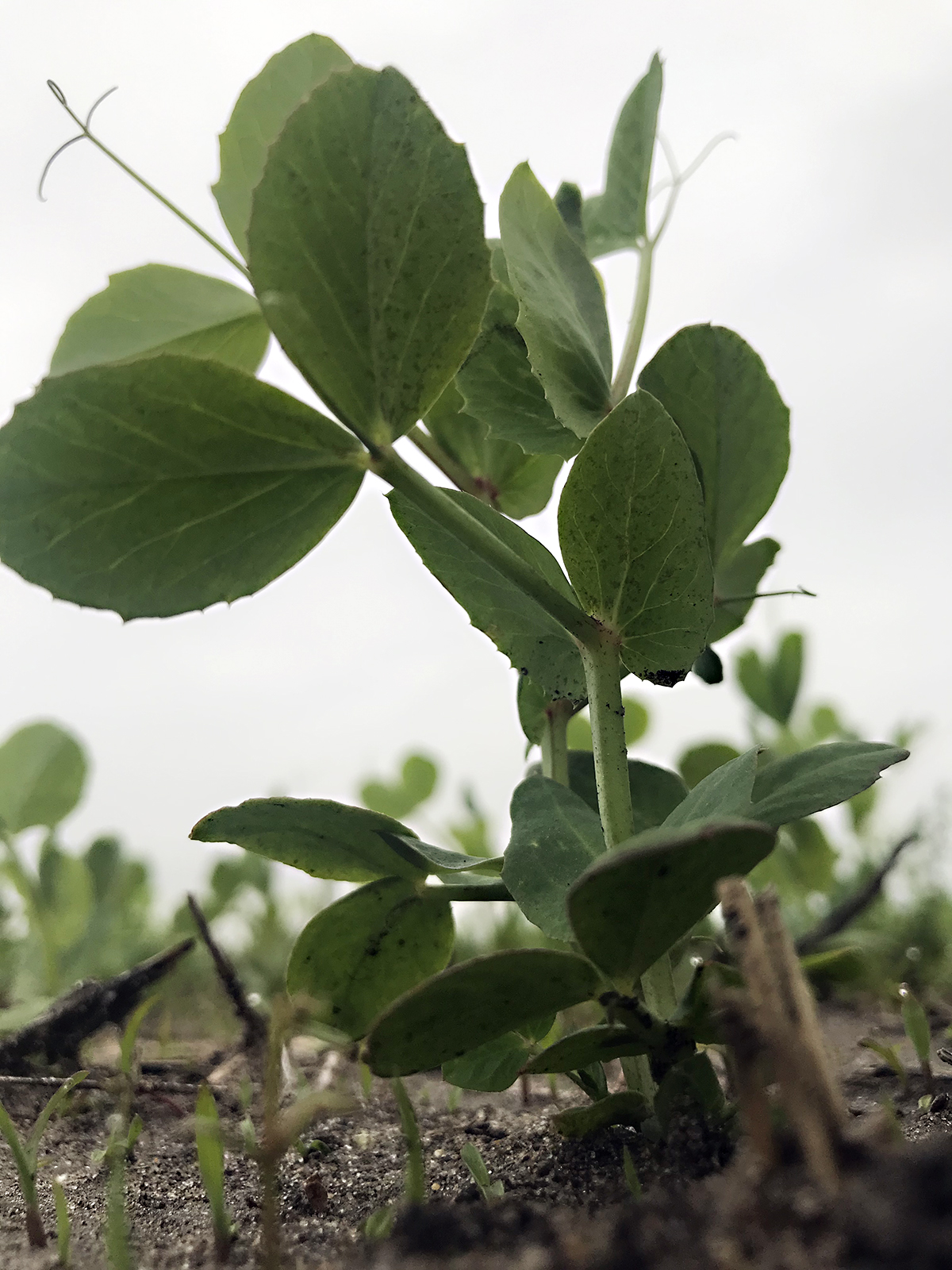 Pea vines are an incredibly critical contributor to the balance and health of our ecosystem, and also one of the first crops on our farm to bloom. Our pea vine fields attract many colonies of beneficial insects, namely pollinators, to our farm. This arrival of pollinators is invaluable, not only for the pea vine, but also for the other acres of plants we grow here. Pea vine flowers attract ladybugs, parasitic wasps (that eat the bad bugs), bees, butterflies, and other important pollinators throughout the spring and summer.
Pea vines are an incredibly critical contributor to the balance and health of our ecosystem, and also one of the first crops on our farm to bloom. Our pea vine fields attract many colonies of beneficial insects, namely pollinators, to our farm. This arrival of pollinators is invaluable, not only for the pea vine, but also for the other acres of plants we grow here. Pea vine flowers attract ladybugs, parasitic wasps (that eat the bad bugs), bees, butterflies, and other important pollinators throughout the spring and summer.
We’ve purpose-built our farm and plan our growing season to support pollinators on our organic farm like the ones attracted to pea vine flowers. Watch this video to learn how we support pollinators throughout the growing season on our farm.
Harvest
We harvest and juice the organic pea vine grown over several days during June and July. Each day of harvest typically yields several thousand gallons of pea vine juice – sometimes up to 6,000 gallons per day. We like to process the pea vines early in the morning, before the heat of the day puts the plants into a defensive mode. This early morning harvest produces some of the most beautiful juice we’ve ever seen.
Good for the Ground
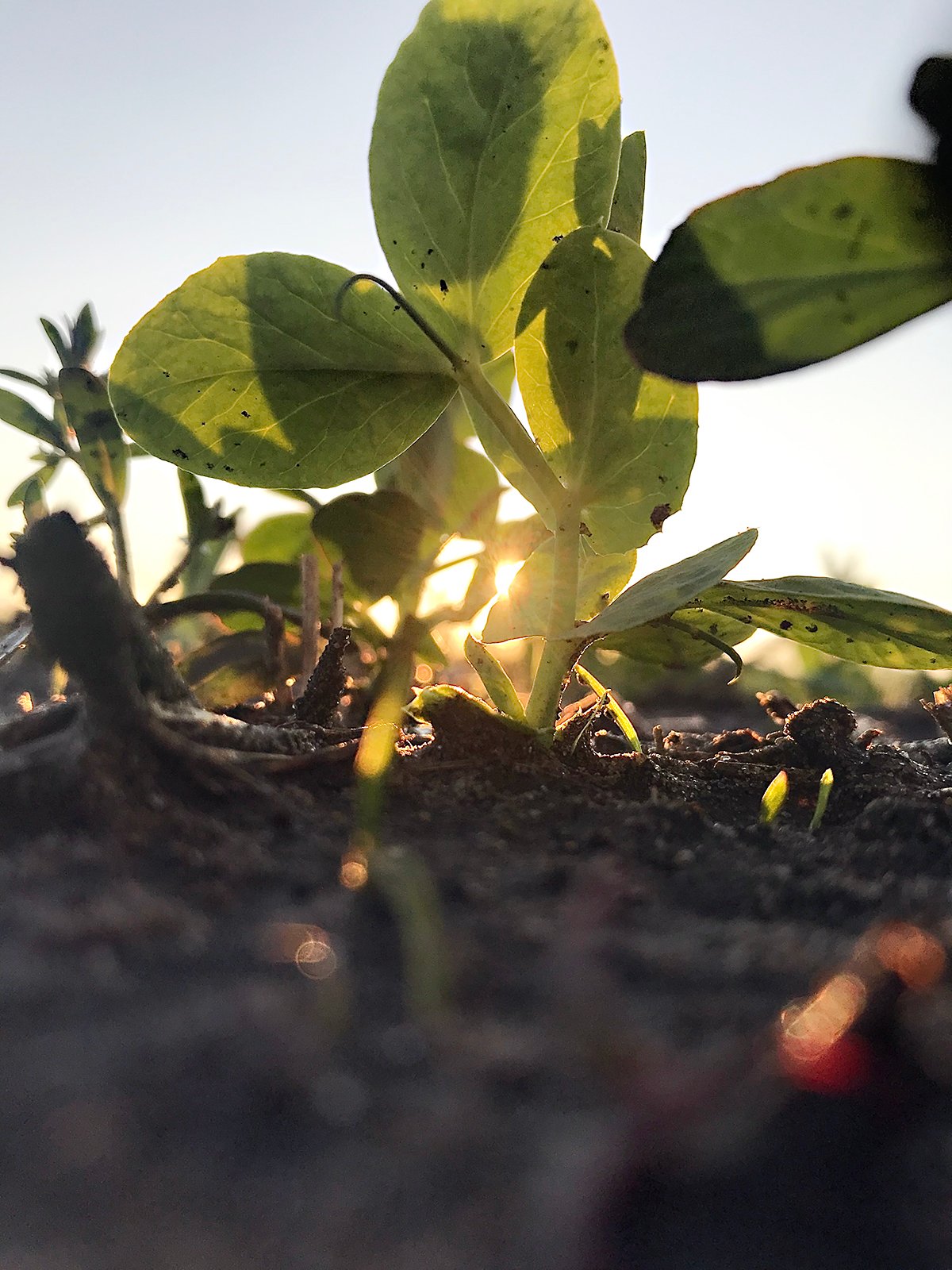
Healthy soil with the right amount of nitrogen is a critical resource that must be managed carefully and effectively on an organic farm like ours. Nitrogen is a key building block for healthy plant growth. Pea vine is a legume that will create and store nitrogen in its roots to be shared at a later date. In this way, pea vine can benefit a fall crop such as Spanish black radish or leave the soil healthy for the following growing season.
Added Bonus: Next Year’s Crop
For our pea seeds, we look no further than our farm. We are fortunate enough to grow enough peas to furnish seeds for the following year’s planting season. This means we know where the seeds come from, and we can uphold the farming tradition of farmers using their own seeds rather than relying on large agribusiness that impose seed rules on farming practices. Plus, we like the idea of self-sustaining crops that allow us to rely solely on our ecosystem and farming practices to perpetuate healthy growth of crops and land management.
Historical Significance to Standard Process
In addition to the pea vine’s critical role in supporting our farm and our native pollinators, pea vine is also one of the key ingredients in our first formula, Catalyn®. Early labels from the 1930s list “green peas (whole plant)” as one of the main ingredients.
Click to learn more about our organic farming practices.
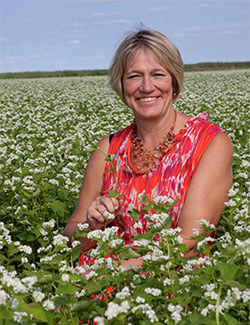
About the Author
As farm operations manager for Standard Process, Christine is responsible for managing the Standard Process certified organic farm. Since joining the company in 2001, she has grown the Standard Process farm into one of the largest organic vegetable farms in Wisconsin. Christine holds a bachelors degree in technical agriculture from the University of Wisconsin-Platteville and has been a professional agronomist for 25 years. She is well known as a leader in the Wisconsin organic farming community.
More Posts by Christine Mason, Standard Process Farm Manager